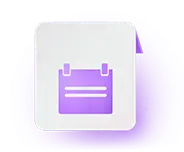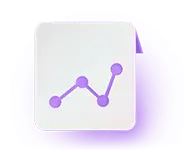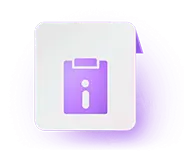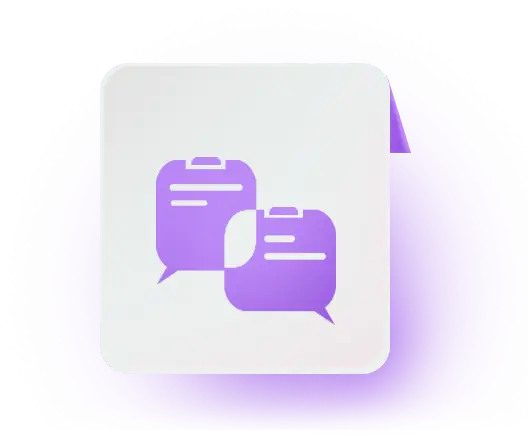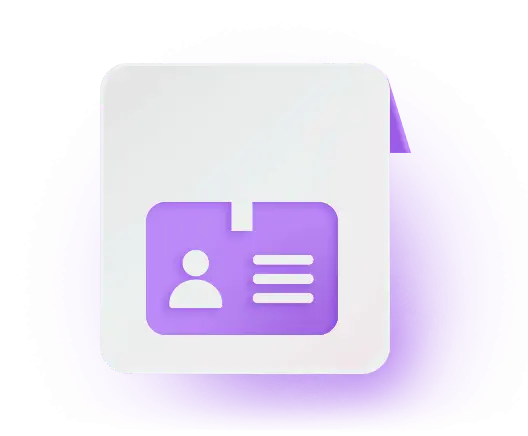- Written by Saif_Ansari
- Last Modified on 16-10-2023
About Gujarat Board Class 10 Exam 2024
The Gujarat Secondary and Higher Secondary Education Board, referred to as GSEB, administers the board exams for Classes 10 and 12. The board directs the respective classes’ intellectual, cognitive and policy-related queries. Students in SSC and HSC need to follow the exam preparation tips accordingly. The GSEB has been conducting the HSC and SSC exams for the past few years.
Every year, approximately 10 lakh students appear for the GSEB SSC exams. The exams are conducted offline. Students must secure passing marks in the Class 9 exams so that they can appear for the Class 10 exams. The GSEB Class 10 exams for the academic year 2023-24 will take place from March 2024. Continue reading the article to find more information on Gujarat Board Secondary Education Exams.

Gujarat Board Class 10 Exam Summary 2023
The GSEB conducts the board exams for Class 10 every year, and more than 10 lakh students appear for these exams actively. The exams are carried out in offline mode, but registrations are done online. The medium of instruction for the exam is set in three languages: English, Hindi, and Gujarati.
In the table below, we have provided the Gujarat Board Class 10 exam summary that students must be familiar with:
| Particulars |
Exam Details |
| Name of the Exam |
Gujarat SSC Board Exams |
| Conducting Body |
Gujarat Secondary and Higher Secondary Board Exam |
| Year of Establishment |
1965 |
| Headquarters |
Gujarat Secondary and Higher Secondary Board, Sector 10B, Near Old Sachivalaya, Gandhinagar-382010 |
| Level of the Exam |
State-level |
| Mode of Registration |
Online |
| Mode of Exam |
Offline |
| Language Subjects |
English, Hindi, Gujarati, Sanskrit |
| Academic Subjects |
Mathematics, Social science, Science and Technology, Computer Science |
| Frequency of Exam |
Once in a Year |
| Medium of Exam |
English, Hindi or Gujarati |
The Gujarat Board sets a minimum pass percentage that students must score to pass the examination. The minimum pass percentage for the GSEB Class 10 exams is 33%. Students must be scoring 33% not only in the aggregate but also in each subject to secure a pass percentage.
The question paper for Gujarat Board Class 10 is available in Hindi, English and Gujarati. The total marks for each Gujarat Board Class 10 exam subject are 100.
Gujarat Board Class 10 Official Website
https://www.gseb.org/
Gujarat Board Class 10 Latest Updates
- Gujarat Board has announced the Class X date sheet on its website. According to the Gujarat Board time table, high school board exams will begin on March 11 and end on March 22, 2024. Check out the official date sheet PDF to learn more.
- Gujarat Board has introduced major changes to Class 12 exam pattern, as per the NEP 2020. One major change is the increase of 10% objective-type questions (MCQs) — i.e., from 20% to 30%, whereas the percentage for descriptive questions has dropped from 30% to 20%. Learn more about the revised GSEB Class 10 exam pattern.
Gujarat Board Class 10 Registration Process 2024
The schools must register for the GSEB SSC exams to ensure that students can eventually enrol and appear for exams. The registration process is online. The schools must register to the platform using the credentials so that they can submit the appropriate documents. The Gujarat Board Class 10 registration forms for 2024 will expectedly be released in November 2023 and closed in December 2023. The application fee for the board ranges from INR 250 to INR 350. Students need to pay INR 350 if they are paying the late fee.
The steps to register for GSEB Class 10 exam registration form are as follows:
- 1st Step: Visit the official website of the Gujarat Board.
- 2nd Step: On the homepage, different Notification pages will be there. Click on the “Online Student Registration form SSC” tab.
- 3rd Step: Under the registration tab, click on the login option.
- 4th Step: Click on the “Click Here to login” option, and fill out the school index, password and captcha option.
Gujarat Board Class 10 Exam Pattern 2024
Students in Class 9 must register for the exam. The board conducts exams for all enrolled students in Class 10. The candidate scoring a minimum of 33% in each subject is considered to have passed the Class 10 Gujarat State Board exam.
The Gujarat Board Class 10 exams are conducted in offline mode. Apart from Computer Science, all other subjects have theory exams on the basis of which they are evaluated. Computer Science is evaluated on the basis of school-level exams.
The question paper for the Class 10 Gujarat Board Examination usually consists of the following types of questions:
| Question Type |
Mark |
| Very Short Answer Questions |
1 Mark |
| Short Answer Type Questions-I |
2 Mark |
| Short Answer Type Questions-II |
3 Mark |
| Long Answer Type Questions |
4/5 Mark |
The time duration for each exam is 3 hours. At the beginning of each exam, 15 minutes are allotted to fill in details in the question paper and answer sheet and to read the instructions. There is no negative marking in the exam. Students must use the 15 minutes only for reading the paper and refrain from writing in the answer sheets.
Gujarat Board Class 10 Exam Syllabus 2024
A syllabus is like a roadmap that makes it easier for students to prepare for exams. When students go through the syllabus, they will be able to understand what they must prepare and what they must avoid. Furthermore, the Gujarat Board Class 10 exam syllabus 2024 focuses on all the key areas students must prepare. This will eventually ensure that students are well-prepared for their higher education.
Gujarat Board Class 10 English First Language Syllabus
The GSEB Class 10 English syllabus includes topics that will help enhance students’ grammatical knowledge. While they have learnt grammar all throughout their previous years, Class 10 is where their knowledge will be put to use. Therefore, it is important that students check and refer to the syllabus appropriately to score better marks.
| Class 10 English First Language Syllabus |
| Prose |
A Short Monsoon Diary
The Man who found the Titanic
Too Dear
You’ve Got To Find What You Love
The Dear Departed
A Petition of the Left Hand
On The Rule of The Road
In Praise of Technology
The Gold Frame
Letter To Daughter
One Full, One Half
Pushing Yourself To Limits
The Danger of Lying In Bed |
| Poetry |
Leave This Chanting
The Way Through The Woods
The Mirror
The Rum Tum Tugger
A Bird Came Down The Walk
On Killing A Tree
I Will Meet You Yet Again
Dreamers |
| Supplementary Reading |
The Parson’s Pleasure
Out Of Africa
My Unforgettable Guru |
Gujarat Board Class 10 English Second Language Syllabus
While it is important that students brush up on their grammar skills, they must also foster creativity in themselves. English Literature is one of those subjects that opens the student’s mind to a whole new world of imagination. Furthermore, with a better understanding of their creative skills, students can also develop their careers in their respective fields.
GSEB places an important focus on fostering creativity in students. Therefore, in the table below, we have provided the GSEB Class 10 English Literature syllabus:
| Class 10 English Second Language Syllabus |
| Prose |
Against the Odds
The Human Robot
An Interview with Arun Krishnamurthy
A Wonderful Creation
Playing with Fire
I Love You, Teacher
Kach & Devyani
Our Feathered Friends
Tune up O Teens
Test of True Love |
| Poetry |
My Song
Pencil
Growing
Vanilla Twilight |
Gujarat Board Class 10 Science Syllabus
Science requires students to be focused so that they can prepare for the exams in a better manner. This is one of those subjects that gives you an experimental view of life and makes you familiar with creativity.
In the table below, we have provided the Science syllabus for Gujarat Board Class 10:
| Class 10 Science Syllabus |
| Chapters |
Topics |
| Chemical Substances-Nature and Behavior |
Chemical reactions: Chemical equation, balanced chemical equation, implications of a balanced chemical equation, types of chemical reactions: combination, decomposition, displacement, double displacement, precipitation, neutralisation, oxidation and reduction. |
| Acids, bases and salts: Their definitions in terms of furnishing of H+ and OH– ions, general properties, examples and uses, the concept of pH scale (Definition relating to logarithm not required), the importance of pH in everyday life; preparation and uses of sodium hydroxide, bleaching powder, baking soda, washing soda and plaster of paris. |
| Metals and Nonmetals: Properties of metals and non-metals; reactivity series; formation and properties of ionic compounds; basic metallurgical processes; corrosion and its prevention. |
| Carbon compounds: Covalent bonding in carbon compounds. Versatile nature of carbon. Homologous series. Nomenclature of carbon compounds containing functional groups (halogens, alcohol, ketones, aldehydes, alkanes and alkynes), the difference between saturated hydrocarbons and unsaturated hydrocarbons. Chemical properties of carbon compounds (combustion, oxidation, addition and substitution reaction). Ethanol and Ethanoic acid (only properties and uses), soaps and detergents. |
| Periodic classification of elements: Need for classification, early attempts at classification of elements (Dobereiner’s Triads, Newland’s Law of Octaves, Mendeleev’s Periodic Table), the modern periodic table, gradation in properties, valency, atomic number, metallic and non-metallic properties. |
| World of Living |
Life processes: ‘Living Being’. The basic concept of nutrition, respiration, transport and excretion in plants and animals.
Control and coordination in animals and plants: Tropic movements in plants; Introduction of plant hormones; Control and coordination in animals: Nervous system; Voluntary, involuntary and reflex action; Chemical co-ordination: animal hormones. |
| Heredity and Evolution: Heredity; Mendel’s contribution- Laws for inheritance of traits: Sex determination: brief introduction; Basic concepts of evolution. |
| Natural Phenomena |
| Refraction: Refraction of light by the spherical lens; Image formed by spherical lenses; Lens formula (Derivation not required); Magnification. Power of a lens. Functioning of a lens in the human eye, defects of vision and their corrections, and applications of spherical mirrors and lenses. Refraction of light through a prism, dispersion of light, scattering of light, applications in daily life. |
| Electric Current & Magnetic Effects |
Effects of Current: Electric current, potential difference and electric current. Ohm’s law; Resistance, Resistivity, Factors on which the resistance of a conductor depends. The series combination of resistors, parallel combination of resistors and its applications in daily life. Heating effect of electric current and its applications in daily life. Electric power, Interrelation between P, V, I and R. |
| Magnetic effects of current: Magnetic field, field lines, field due to a current-carrying conductor, field due to current-carrying coil or solenoid; Force on current-carrying conductor; Fleming’s Left Hand Rule, Electric Motor, Electromagnetic induction. The induced potential difference, Induced current. Fleming’s Right Hand Rule, Electric Generator, Direct current. Alternating current: frequency of AC. Advantage of AC over DC. Domestic electric circuits. |
| Natural Resources |
Management of natural resources: Management of natural resources, conservation and judicious use of natural resources, forest and wildlife, Coal and petroleum conservation. Examples of people’s participation in the conservation of natural resources. |
| The regional environment: Big dams, its advantages and limitations, alternatives if any, Water harvesting, Sustainability of natural resources. |
| Sources of energy: Different forms of energy, conventional and non-conventional sources of energy: Fossil fuels, solar energy; biogas; wind, water and tidal energy; Nuclear energy. Renewable versus non-renewable sources of energy. |
| Our environment: Eco-system, Environmental problems, Ozone depletion, waste production and their solutions. Biodegradable and non-biodegradable substances. |
Gujarat Board Class 10 Social Studies Syllabus
Gujarat Board Class 10 Social Science constitutes four units- History, Civics, Geography and Economics. Each of these units is of utmost importance for the overall development of the children. This subject allows students to be familiar with their past and present surroundings.
In the table below, we have provided the Social Science syllabus for GSEB Class 10:
| Class 10 Social Science Syllabus |
| Chapter No. |
Chapter Name |
Topics |
| Chapter 1 |
Heritage of India |
India: Location and area, rich and varied heritage, the meaning of culture, cultural heritage of India, natural heritage of India, Cultural heritage of Gujarat, fairs of Gujarat, India: Land and people, Preservation and conservation of Heritage. |
| Chapter 2 |
Cultural Heritage of India: Traditional Handicraft and Fine Arts |
Introduction, Art of Indian Artisans, Art Clay Work, Art of Weaving, Art of Embroidery, Leather Industry, Diamond Beadwork and Enamel Work, Jari Work, Metal Work, Wooden Art, Inlay Work, Akik Work, Painting, Fine Arts of India, Music, Art of Dance, Bharatanatyam, Kuchipudi, Kathakali, Manipuri Dance, Dramatic Art, Bhavai, Folk Dance of Gujarat, Tribal Dance, Garba, Rasa, Other Dances of Gujarat. |
| Chapter 3 |
Cultural Heritage of India: Sculpture and Architecture |
Interaction, Sculpture, Architecture, Ancient Indian Town Planning, Mauryan Art, Pillar Inscription, Pillar at Sarnath, Stone Inscription, Dravid Style of Art In South India, Art of Gupta Period, Cave Architecture, Caves of Gujarat, Chariot Temple, Temple Architecture, Architecture of Gopuram, Linear Sketch of Temple, Jain Temple, Medieval Architecture, Architecture of Gujarat, Information About Linear Sketch of Mosque. |
| Chapter 4 |
Literary Heritage of India |
Language and Literature, Ancient Indian Literature, Mediaeval Literature, The Ancient Universities of India. |
| Chapter 5 |
India’s Heritage of Science and Technology |
Heritage of Ancient India in the Field of Science and Technology, Metallurgy, Chemistry, Science of Medicine and Surgery, Mathematics, Astronomy and Astrology, Vastushastra. |
| Chapter 6 |
Places of Indian Cultural Heritage |
Caves of Ajanta, Ellora caves, Elephanta Caves, Mahabalipuram, Pattadakal Memorial, Temples at Khajuraho, Sun Temple of Konark, Brihadeshwara Temple, Qutub Minar, Hampi, Humayun’s Tomb, Fort of Agra, Taj Mahal, Red Fort, Fatehpur Sikri, Churches of Goa, Champaner, Places of Cultural Heritage of Gujarat, Dholavira and Lothal, Junagadh, Ahmedabad, Patan, Places of pilgrimages of India. |
| Chapter 7 |
Preservation of Our Heritage |
Need for the Preservation of Cultural Heritage, Necessity of Preservation of Cultural Heritage, Tourism Industry and Our Heritage, Preservation of Heritage and Measures of Conserve, Ancient Memorial and Archaeological Sites and Remains Act, Our Role in Preservation of Museum, Our Role in Preservation of Heritage, Cleanliness and Preservation of Picnic Spots, India: Unity in Diversity. |
| Chapter 8 |
Natural Resources |
Uses of Resources, Types of Resources, Planning and Conservation of Resources, Soil Formation, Soil, Types of Soil, Soil Erosion, Measures to Prevent Soil Erosion, Conservation, Remedies of Soil Conservation. |
| Chapter 9 |
Forest and Wildlife Resources |
Classification of Forest, Types of Forest According to Administration, Classification of Forest According to Ownership, Administration and Management, Deforestation, Impact of Deforestation, Remedies of Forest Conservation, Wildlife Diversity, Wildlife Of Extinction, Reasons for the Destruction of Wildlife, Measures of Preservation of Wildlife, Wildlife Protection Scheme, Sanctuaries, National Parks and Biosphere Reserves. |
| Chapter 10 |
India: Agriculture |
Types of Farming, Forming Methods, Agriculture Products of India, Hot Beverages, Cash Crops, Technical Reforms, Green Revolution, Role of Agriculture in Indian Economy, Impact of Globalisation of Indian Agriculture. |
| Chapter 11 |
India: Water Resources |
Sources of Water, Water Resources and Uses, Distribution of Area Under Irrigation, Water Crisis, Management and Conservation of Water Resources, Watershed Development, Rainwater Harvesting, Main Objectives of Rainwater Harvesting, Points should be Considered for Water Management. |
| Chapter 12 |
India: Mineral and Energy Resources |
Mineral, Iron Ore, Manganese, Copper, Bauxite, Mica, Lead, Limestone, Mineral of Energy Resources, Classification of Energy Resources, Coal, Indian Coal Reserves, Mineral Oil, Oil Face of Gujarat, Mineral Oil Refining, Natural Gas, Non Conventional Energy Resources, Solar Energy, Wind Energy, Biogas, Geothermal Energy, Tidal Energy, Mineral Preservation, Remedies for Mineral Preservation. |
| Chapter 13 |
Manufacturing Industries |
Importance of Industries, Classification of Industries, Agro Based Industries, Cotton Textile Industry, Jute Textile Industry, Silk Textile Industry, Woolen Textile Industry, Synthetic Textile Industry, Sugar Industry, Paper Industry, Mineral Based Industries, Iron and Steel Industries, Aluminium Refining Industries, Corporate Training, Chemical Industry, Chemical Fertilizer Industry, Cement Industry, Transport Equipment Industry, Railway, Road Vehicles, Shipbuilding Industry, Electronic Industry, Industrial Pollution and Environmental Degradation, Remedies of Curb Environmental Degradation. |
| Chapter 14 |
Transport Station, Communication and Trade |
Transportation, Road for Land Transportation, Classification of Indian Roadways, National Highway, State Highway, District Roads, Village Roads, Border Roads, Traffic Problems, Some Suggestions to Remove Traffic Problems, Railway, Progress Of Railway, Waterway, Transportation by River Canal, Ocean Waterway, Airways, Other Means of Transportation, Communication, Individual Communication System, Mass Communication System, Satellite Communications, Trade, Internal Trade, International Trade, Important Trade Of India, Export Trade Of India. |
| Chapter 15 |
Economic Development |
Economic Development, Difference Between Economic Progress and Economic Development, Features of Developing Economy, Economic and Non Economic Activities, Structure of Indian Economy, Factors of Production, Distribution of Factors of Production, Methods of Inerting of Resources, Marketing System, Features of Market Mechanism System, Benefits of Market Mechanism System, Limitations of Market Mechanism System, Socialist System, Features of Socialist System, Benefits of Socialist System, Limitations of Socialist System, Mixed Economy. |
| Chapter 16 |
Economic Liberalisation and Globalisation |
Economic Liberalisation, Advantages of Liberalisation, Disadvantages of Liberalisation, Privatisation, Advantages of Privatisation, Disadvantages of Privatisation, Globalisation, Effects of Globalisation, World Trade Organisation (WTO), Impacts of Indian Economy, Sustainable Development, Strategies to be Adopted for Conservation and Preservation of Natural Resources, Step Taken to Protect Environment. |
| Chapter 17 |
Economic Problems and Challenges: Poverty and Unemployment |
Poverty, People Living Below Poverty Line, Measurement of Poverty, Poverty In India, Reasons of Poverty, Strategy of Poverty Eradication, Poverty Elevation Programme, Unemployment, Proportion of Unemployment in India, Efforts to Reduce Unemployment, World Labour Market. |
| Chapter 18 |
Price Rise and Consumer Awareness |
Reasons for Price Increase, Increase in Monetary Supply, Population Growth, Increase in Export, High Price of Raw Material, Usage of Non Registered Currency, Price Rise by Government, Natural Factors, Smuggling and Black Marketing, Why Prices Should Be Controlled?, Steps Taken to Control Price Rise, Consumer Awareness, Forms of Consumer Exploitation, Reasons of Consumer Exploitation, Consumer Awareness in Consumer Protection, Legislation Concerning Consumer Rights, Related to Consumer Service, Rights of Consumers, Duties of Consumer, Measures of Consumer Protection, Consumer Society, Public Distribution System, System Certified Weights and Measures and Purity of Goods, Organisation at the International Level, Who Can File a Complaint? Where? How to File a Complaint? |
| Chapter 19 |
Human Development |
Meaning of Human Development, Human Development Index, Human Development Report, Challenges of Human Development, Health, Sex Ratio, Women Empowerment, Women Welfare Schemes, Steps Taken to Stop Women Exploitation, Where Is Schemes of Gujarat Government for Providing Equality to Women. |
| Chapter 20 |
Social Problems of India and Challenges |
Communalism, Struggles Against Communism, Castism, Constitutional Provisions for Protection of Interest of the Minorities, Week and Backward Classes, Minorities, Scheduled Caste and Scheduled Tribes, Constitutional Provisions, General Provisions, Special Provisions, Provisions of Only for Scheduled Castes, Provisions Only for Scheduled Tribes, Terrorism A Global Problem, Rebellion and Terrorism In India, Insurgents in North East, Terrorism in Kashmir, Social Effects of Terrorism, Economic Impacts of Terrorism. |
| Chapter 21 |
Social Change |
Awareness About Law And Its Need, Why is it Necessary To Have General Knowledge About Law?, Rights of Citizen, Fundamental Rights Of Citizen, Rights Of Child, Write For Protection Against Exploitation, Child Labour and Neglected Child, Reasons for Child Labour, Efforts for Abolition Child Labour, Protecting the Elderly and Helpless, Anti Social Activities, Corruption, Corruption in Our Country and Foreign Country, Steps to Curb Corruption, Right To Information Act 2005, How to Obtain Information, Provisions for Appeal, Provisions For Fine, Law Regarding Right todom And Compulsory Education 2009 ( RTE 2009), National Food Security Act 2013, Objectives of Food Security Bill, Some Legislative Provisions. |
Gujarat Board Class 10 Mathematics Syllabus
The curriculum emphasises the importance of Mathematics in students’ daily lives. It also emphasises the growth of a child’s mathematical reasoning and comprehension. Students must ensure that they study Maths in Class 10 carefully so that they are able to strengthen their skills and also score better marks in exams.
|
GSEB Class 10 Mathematics Syllabus
|
|
Chapter
|
Topics
|
|
UNIT I: NUMBER SYSTEMS
|
|
Real numbers
|
Euclid’s division lemma, Fundamental Theorem of Arithmetic – statements after reviewing work done earlier and after illustrating and motivating through examples, Proofs of the irrationality of 2, 3, 5, Decimal representation of rational numbers in terms of terminating/non-terminating recurring decimals.
|
|
UNIT II: ALGEBRA
|
|
Polynomials
|
Zeros of a polynomial. Relationship between zeros and coefficients of quadratic polynomials. Statement and simple problems on division algorithms for polynomials with real coefficients.
|
|
Pair of linear equations in two variables
|
Pair of linear equations in two variables and graphical method of their solution, consistency/inconsistency.
Algebraic conditions for number of solutions. Solution of a pair of linear equations in two variables algebraically – by substitution, elimination and cross multiplication method. Simple situational problems. Simple problems on equations are reducible to linear equations.
|
|
Quadratic equations
|
The standard form of a quadratic equation ax2 + bx + c = 0, (a ≠ 0). Solutions of quadratic equations (only real roots) by factorization and using quadratic formulas. Relationship between discriminant and nature of roots. Situational problems based on quadratic equations related to day-to-day activities must be incorporated.
|
|
Arithmetic progressions
|
Motivation for studying Arithmetic Progression Derivation of the nth term and sum of the first n terms of A.P. and their application in solving daily life problems.
|
|
UNIT III: TRIGONOMETRY
|
|
Introduction to trigonometry
|
Trigonometric ratios of an acute angle of a right-angled triangle. Proof of their existence motivates the ratios, whichever are defined at 300, 450 and 600, relationships between the ratios.
|
|
Trigonometric Identities
|
Proof and applications of identity Sin2A+Cos2A=1. Only simple identities are to be given. Trigonometric ratios of complementary angles.
|
|
Heights and distances
|
Simple and believable problems on heights and distances. Problems should not be more than two right triangles. The angle of elevation/depression should be only 300, 450 and 600.
|
|
UNIT IV: COORDINATE GEOMETRY
|
|
Lines (In two dimensions)
|
Review the concepts of coordinate geometry done earlier, including graphs of linear equations, Awareness of geometrical representation of quadratic polynomials, Distance between two points and section formula (internal), and Area of a triangle.
|
|
Unit V: GEOMETRY
|
|
Triangles
|
- Definitions, examples, and counter examples of similar triangles.
- (Prove) If a line is drawn parallel to one side of a triangle to intersect the other two sides in distinct points, the other two sides are divided in the same ratio.
- (Motivate) If a line divides two sides of a triangle in the same ratio, the line is parallel to the third side.
- (Motivate) If the corresponding angles are equal in two triangles, their corresponding sides are proportional, and the triangles are similar.
- (Motivate) If the corresponding sides of two triangles are proportional, their corresponding angles are equal, and the two triangles are similar.
- (Motivate) If one angle of a triangle is equal to one angle of another triangle and the sides including these angles are proportional, the two triangles are similar.
- (Motivate) If a perpendicular is drawn from the vertex of the right angle of a right triangle to the hypotenuse, the triangles on each side of the perpendicular are similar to the whole triangle and to each other.
- (Prove) The ratio of the areas of two similar triangles is equal to the ratio of the squares of their corresponding sides.
- (Prove) In a right triangle, the square on the hypotenuse equals the sum of the squares on the other two sides.
- (Prove) In a triangle, if the square on one side is equal to the sum of the squares on the other two sides, the angle opposite to the first side is a right angle.
|
|
Circles
|
Tangent to a circle at, the point of contact
- (Prove) The tangent at any point of a circle is perpendicular to the radius through the point of contact.
- (Prove) The lengths of tangents drawn from an external point to a circle are equal.
|
|
Constructions
|
- Division of a line segment
- Tangent to a circle from a point outside it
- Construction of tangents to a circle
|
|
UNIT IV: MENSURATION
|
|
Areas related to circles
|
Measure motivates the area of a circle, the area of sectors, and segments of a circle. Problems based on areas and perimeter/circumference of the above-said plane figures. (In calculating the area of a segment of a circle, problems should be restricted to the central angle of 60°, 90° and 120° only. Plane figures involving triangles, simple quadrilaterals and circles should be taken.)
|
|
Surface areas and volumes
|
- Problems on finding surface areas and volumes of combinations of any two of the following: cubes, cuboids, spheres, hemispheres and right circular cylinders/cones. Frustum of a cone.
- Problems involving converting one type of metallic solid into another and other mixed problems. (Problems with a combination of not more than two different solids be taken).
|
|
UNIT VII: STATISTICS AND PROBABILITY
|
|
Statistics
|
The mean of grouped data, Mode of grouped data, Median of grouped data, Graphical representation of cumulative frequency distribution
|
|
Probability
|
The classical definition of probability. Simple problems in finding the probability of an event.
|
Gujarat Board Class 10 Exam Blueprint
Students in GSEB must be familiar with the exam blueprint, as it will help them understand the exam pattern. It will also help them determine what they must follow to score higher marks. Because the marks division for each subject is provided, students will be able to identify the important chapters and prepare accordingly. In the table below, we have provided the GSEB Class 10 exam blueprint:
Gujarat Board Class 10 Exam Date 2024
Gujarat Board released the GSEB SSC exam timetable on October 13, 2023. The exams will begin on March 11, 2024 and continue till March 22, 2024.
Steps to Download Gujarat Board SSC Date Sheet 2024
Here are the simple steps to download Gujarat Board SSC time table.
- 1st Step: Visit the official website of Gujarat Secondary and Higher Secondary Education Board – http://www.gseb.org.
- 2nd Step: Click on the “GSEB Class 10 Exam Schedule” option under the latest notification section.
- 3rd Step: The timetable will be displayed on the screen.
- 4th Step: Download the timetable and save it for future reference.
|
GSEB Class 10 Exam Dates
|
Subjects
|
|
March 11, 2024
|
First Language – Gujarati/Hindi/Marathi/English/Urdu/Sindhi/Tamil/Telugu/Odia
|
|
March 13, 2024
|
Standard Mathematics / Basic Mathematics
|
|
March 15, 2024
|
Social Science
|
|
March 18, 2024
|
Science
|
|
March 20, 2024
|
English (Second Language)
|
|
March 21, 2024
|
Gujarati (Second Language)
|
|
March 22, 2024
|
Second Language (Hindi/Sindhi/Sanskrit/Farsi/Arabic/Urdu), Healthcare, Beauty and Wellness, Travel Tourism, Retails
|
The date sheet given above is subject to change based on how Gujarat Board sees fit.
Gujarat Board Class 10 Exam-day Guidelines
Students must read the instructions given in the GSEB Class 10 admit card, and follow them. Some of the important exam-day guidelines for GSEB Class 10 board exams are provided below.
- Students need to report to the exam centre at least 60 minutes before to the scheduled exam commencement time.
- They will get the first 15 minutes to read the question paper.
- They must carry their original admit card with a valid photo ID proof to the exam centre on all exam days.
- They should not carry any prohibited devices or items inside the exam hall. The prohibited items are notebooks, books, mobile phones, blank paper sheets, earphones, Bluetooth devices, tablets, digital watches, speakers, and electronic chips. Refer to the admit card for a detailed list of items.
- Students should carry their own stationery. They shall not be allowed to borrow anything from the other examinees inside the exam room.
- Students must refrain from malpractices such as copying, cheating etc. Students found performing such acts, their candidature is liable to be cancelled.
Gujarat Board Class 10 Admit Card 2024
The Gujarat Board Class 10 2024 admit card will be released in March 2024. The Gujarat Board Class 10 exams 2024 will take place from March 2024. Therefore, the board will tentatively release the Class 10 admit cards in the first week of March. Candidates can stay updated with the official website or this page for the latest information.
The admit cards will be available on the official website. Regular students can collect their admit cards from their respective schools. The school authorities have the login credentials for the board that they can use to access the admit card.
Private students will have to download the admit card from the official website. The steps to be followed to download the admit card are:
- 1st Step: Click on the official link of Gujarat Board Class 10.
- 2nd Step: Click on the Gujarat SSC Board Exam Hall Ticket 2024 on the home page.
- 3rd Step: Enter the credentials to access the admit card.
- 4th Step: Gujarat SSC Board exam admit card will open on the screen. Take printouts of the admit card and keep it safe.

Gujarat Board Class 10 Study Plan to Maximise Score
Students in Gujarat Board need to strategise their preparation right from the beginning of the session so that they can score good marks. Since Class 10 is an important part of a student’s life, it is important that they refer to the basics. They must create a study plan that will not only make exam preparation easy for them but also ensure that they are scoring good marks. For the convenience of students, below we have given exam preparation tips and a detailed study plan.
Gujarat Board Class 10 Preparation Tips
No one is born an expert. You need to hone your skills constantly so that you can stay ahead of the competition. It is important that students follow the preparation tips cautiously so that they do not face any problem in the longer run. Students can find some of the important tips for the Gujarat Board Class 10 exam below
- Anyone who is an expert in anything was once a novice. So, students must strengthen their fundamental understanding of all topics.
- Because every one of you is unique, comparing yourself to your peers might lead to unhealthy competitiveness.
- Do not assess yourself just on the basis of your grades.
- Do not give up because of a minor setback. Continue to learn from your mistakes and grow as a result of them.
- Check your name, roll number and the numbering of each question that is correct before handing the answer sheets to the invigilator.
Gujarat Board Class 10 Detailed Study Plan
Students need a thorough approach and a detailed study plan to get good grades in the exam.
One should be aware of his or her own strengths and weaknesses and prepare accordingly. Therefore, students must ensure that they have a subject-wise study routine that will help them score well in exams. Below are some of the crucial subject-wise strategies for students in Gujarat Board Class 10:
Study Strategy for Mathematics:
For many students, Mathematics can be difficult to understand. The following are some strategies to improve your understanding and ace the exam:
- Develop a deep understanding of the concepts and important topics to improve the grades.
- Practice solved problems and exercise questions daily.
- Study easy concepts first, followed by the difficult ones.
- During practice sessions, avoid making silly mistakes and make an effort to correct them.
- Make a list of important formulas in a book and revise them it regularly.
- Make use of short methods in the calculation to save your time during the exam.
- Know the updated blueprint and question pattern thoroughly.
- Solve previous year’s question papers.
Study Strategy for Chemistry:
Due to numerous equations, reactions, formulas, and experiments required in Chemistry, it can sometimes be a complex subject. To get a good grade in Chemistry, students can follow the recommendations below:
- Students must do a thorough study of the subject and put in a lot of practice time.
- Understand the basics before proceeding on to more difficult topics.
- Important formulas and equations should be written down on a piece of paper or a chart that you can view every day. If you do this, you will be able to recall them clearly during exams.
- Utilise laboratory time efficiently. It will help to gain practical knowledge and a better understanding of the basics.
Study Strategy for Physics:
Physics can be difficult because of several numericals, experiments, formulas, laws, and diagrams. Students can overcome these issues by practiscing the following methods:
- Students should gain a thorough understanding of the fundamental principles first.
- Understand the relationship between various concepts.
- Physics exams frequently include questions that include theorems and formulas. Hence, focus on them more.
- Write and solve numerical problems with a pen and paper to learn Physics.
- Make a list of important formulas, laws, diagrams, etc.
- Take frequent mock tests.
Study Strategy for Biology:
Biology is a simple, interesting subject related to a living organism and its surroundings. It is a scoring subject. Here are some strategies to improve grades in Biology:
- Practice drawing neat labelled diagrams.
- Make a list of important topics like scientific names of plants and animals, diseases, causative organisms, symptoms, etc.
- Avoid spelling mistakes as it has many technical words.
- Use flashcards to memorise complicated terms and definitions.
Study Strategy for Social Science
Social Science is a scoring and interesting subject. Here are a few tips for scoring good grades in Social Science:
- Make a list of important dates, events, names, formulas in economics, etc.
- Read the textbook thoroughly.
- Chapters like Public Administration, The State and Political Science, Gujarat Towards Modernity, etc., learn by relating to daily life and the present situation.
- Learn the maps of the different geographical areas.
- Give importance to old question papers and mock tests.
Study Strategy for English
English is one such subject that needs comparatively less preparation time than Mathematics and Science. Here are a few useful tips for scoring good marks in English:
- Read newspapers, storybooks, novels, science fiction, etc., to improve English language knowledge.
- Give more importance to the sections like unseen passage, note-making, etc., as it does not need much preparation.
- Grammar is an important part of the language. Be thorough with the basics of grammar.
- Avoid spelling mistakes.
Gujarat Board Class 10 Exam Result 2024
Last year, the Gujarat Board Class 10 exam 2023 result was released on May 25, 2023. The exam results were uploaded on the official website. Students must keep a check on the space so that they can access the results and score high marks in the exam. This year, the result is expected to be declared somewhere around the last year’s date.
Students can check their results on the official website by following the below steps:
Steps To Download the Gujarat Board Class 10 Results
- 1st Step: Click on the official website http://www.gseb.org/.
- 2nd Step: Enter your 7-digit Seat Number.
- 3rd Step: Click on Go.
- 4th Step: GSEB SSC Results will be displayed on the screen.
- 5th Step: Take a printout of your GSEB SSC results for future reference.
Students need to collect their original mark sheet and certificate from the respective school.
The below table shows the grading system for the Gujarat Board Class 10 Exam:
| Range of Marks |
Grade |
| 91-100 |
A1 |
| 81 -90 |
A2 |
| 71 – 80 |
B1 |
| 61-70 |
B2 |
| 51 -60 |
C1 |
| 41 -50 |
C2 |
| 35-40 |
D |
| 21-35 |
E1 |
| 00-20 |
E2 |
Gujarat Board Class 10 Previous Year Topper List
Given below is the list of the GSEB Class 10 (2022) toppers. The list is released after the result declaration of the exams. Students can refer to the table below for further details:
| Topper’s Name |
Topper’s Marks (Percentage) |
| Savani Hil Ishwarbhai |
594 (99.00%) |
| Ladani Krishi Himanshukumar |
589 (98.16%) |
| Hingrajiya Priya Kumar Jitubhai |
586 (97.66%) |
Gujarat Board Class 10 Previous Year Statistics
Alongwith the names of the toppers, it is important for students to go through the statistics. Being familiar with the Gujarat Board Class 10 previous year’s statistics can be quite helpful for them as it will give them an idea about how tough the competition is. Refer to the table below to check out the previous year’s statistics:
|
GSEB 10th Result 2022 – Last Year Statistics
|
|
Year
|
Overall Pass %
|
Pass % for Boys
|
Pass % for Girls
|
No. of students appeared
|
|
2016
|
67.06
|
63.62
|
72.1
|
791672
|
|
2017
|
68.24
|
64.7
|
73.33
|
775013
|
|
2018
|
67.5
|
–
|
–
|
11,03,674
|
|
2019
|
66.97
|
72.64
|
62.83
|
8,28,944
|
|
2020
|
60.64%
|
56.53%
|
66.02%
|
7,92,942
|
|
2021
|
100%
|
–
|
–
|
8.57 lakh
|
Gujarat Board Class 10 Supplementary Exams
Students who fail to qualify and secure 33% in the board exams should appear for the supplementary exams. The Gujarat Board Class 10 supplementary exams are mostly held during the month of July, and the results are announced by August. Students should ensure that they follow the registration steps to register for the supplementary exams.
The Gujarat Board Class 10 supplementary exams admit card was uploaded on the official website on July 4, 2023. Without the admit card, no student can take up the exams. The Gujarat Board SSC supplementary exam results will be declared a month after the exams.

FAQs on Gujarat Board Class 10 Exam 2024
Below are some frequently asked questions on Gujarat Board Class 10 exams:
Que 1. When will the GSEB Class 10 exams 2024 be conducted?
Ans: The GSEB Class 10 exams 2024 will be conducted from March 11 to 22, 2024.
Que 2. Where can I practice the Gujarat Board Class 10 sample papers?
Ans: Students can practice the Gujarat Board Class 10 sample papers on Embibe.
Que 3. What are the passing marks for the Gujarat Board Class 10 exam?
Ans: Students should score a minimum of 33% in each subject to pass the Gujarat Board Class 10 exam.
Que 4. How can I check Gujarat Board Class 10 results?
Ans: Students can check the Gujarat Board Class 10 results from the official website.
Que 5. How can I get my GSEB Class 10 admit card?
Ans: Students will receive their respective schools’ GSEB Class 10 admit cards.
List of Schools for Gujarat Board Class 10
Students planning to appear for the Gujarat Board Class 10 need to enrol themselves in the Gujarat Board affiliated schools. This will play an important role in helping students prepare for the exams. Gujarat Board Class 10 students can get the opportunity to study in some of the top schools and eventually score higher marks in the exam. In Gujarat, around 12,500 Schools are present. Here are the details of a few schools:
| S.No. |
School Name and Address |
| 1. |
Kendriya Vidyalaya No. 4 ONGC, Vadodara |
| 2. |
The Aditya Birla Public School, Kesrol |
| 3. |
The Aditya Birla Public SChool, Kovaya |
| 4. |
Vapi Public School, Vapi |
| 5. |
Delhi Public School, Surat |
| 6. |
Delhi Public School, Vadodara |
| 7. |
SN Kansagra School, Rajkot |
| 8. |
Jawahar Navodaya Vidyalaya, Kheda |
| 9. |
Jawahar Navodaya Vidyalaya, Mehsana |
| 10. |
Jawahar Navodaya Vidyalaya, Aliabada |
The secondary and higher secondary school list details about the name of the school, village, block and district of each school.
Gujarat Board Class 10 Future Exams
Students must pass Gujarat Board Class 10 Exam to be eligible for various competitive exams. Apart from the board exam, there are various more national and international competitive tests. Such exams help a student’s interests, abilities, knowledge, and potential to shine.
Some of the competitive assessments that Class 10 students can take include:











